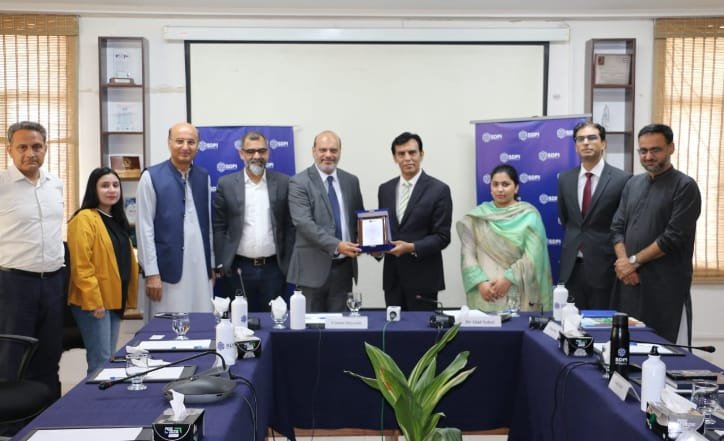
Islamabad :- On the occasion of the World Day to Combat Desertification and Drought, Senator Sherry Rehman, Chair of Senate Standing Committee on Climate Change, called for accelerated investment in land restoration, regional climate cooperation, and an end to the weaponization of water resources, warning that Pakistan is on the frontlines of a compounding climate emergency marked by desertification, drought, and declining water security.
“Pakistan is losing fertile land at an alarming rate due to desertification, droughts, and mismanaged water resources, threatening food security, livelihoods, and the very fabric of rural economies,” she stated. “This is not just an environmental issue—it is a national emergency.”
Climate Risk Index 2025 ranks Pakistan 1st among top ten countries most affected by extreme weather events in 2022, with over 68 per cent of its land area now classified as arid or semi-arid. The country loses nearly 27,000 hectares of forest and productive land annually, while prolonged droughts in Balochistan, Sindh, and South Punjab continue to push vulnerable communities deeper into poverty. The per capita availability of water has plummeted from 5,000 cubic meters in 1947 to less than 900 today, crossing the threshold of water scarcity.
This year’s theme—”Restore the Land. Unlock the Opportunities”—could not be more relevant for Pakistan. Healthy land underpins food systems, climate resilience, and economic stability. But as the UNCCD warns, over 1 million km² of productive land—about 113% of Pakistan’s total land area—is lost to degradation every year, requiring $1 billion in daily investments worldwide for restoration between 2025 and 2030. Yet current global investments stand at just $66 billion annually, with private sector contributions at a paltry 6 per cent.
Senator Rehman emphasized that land restoration in Pakistan must be prioritized as a climate adaptation strategy with multiple co-benefits: “Every dollar invested in land restoration yields $7–30 in economic returns. We cannot afford to ignore these numbers any longer.”
She also called on the international community to ramp up support for South Asia, urging multilateral financing mechanisms and debt relief to unlock restoration investments. “The Global South is drowning in climate losses. We need urgent support to revive our ecosystems and protect our people.”
Senator Rehman underscored the need of projects and initiatives which aim to restore degraded ecosystems and riverine health, but warned that piecemeal projects are not enough. “We need a full-spectrum, national strategy that integrates land restoration into agricultural reform, climate adaptation, and rural development.”
Concluding her statement, she urged the government to legislate stronger protection for rangelands, invest in drought-resilient infrastructure, and create incentives for regenerative farming and reforestation, particularly in climate-vulnerable districts.
“This is the decade of restoration. Let Pakistan not be left behind. Let us restore our land, reclaim our water security, and unlock the opportunities that a climate-resilient future can bring.”
Sohail Majeed is a Special Correspondent at The Diplomatic Insight. He has twelve plus years of experience in journalism & reporting. He covers International Affairs, Diplomacy, UN, Sports, Climate Change, Economy, Technology, and Health.





![logo-1[1]](https://globalnewspakistan.com/wp-content/uploads/2025/01/logo-11-e1737618310315-300x187.png)